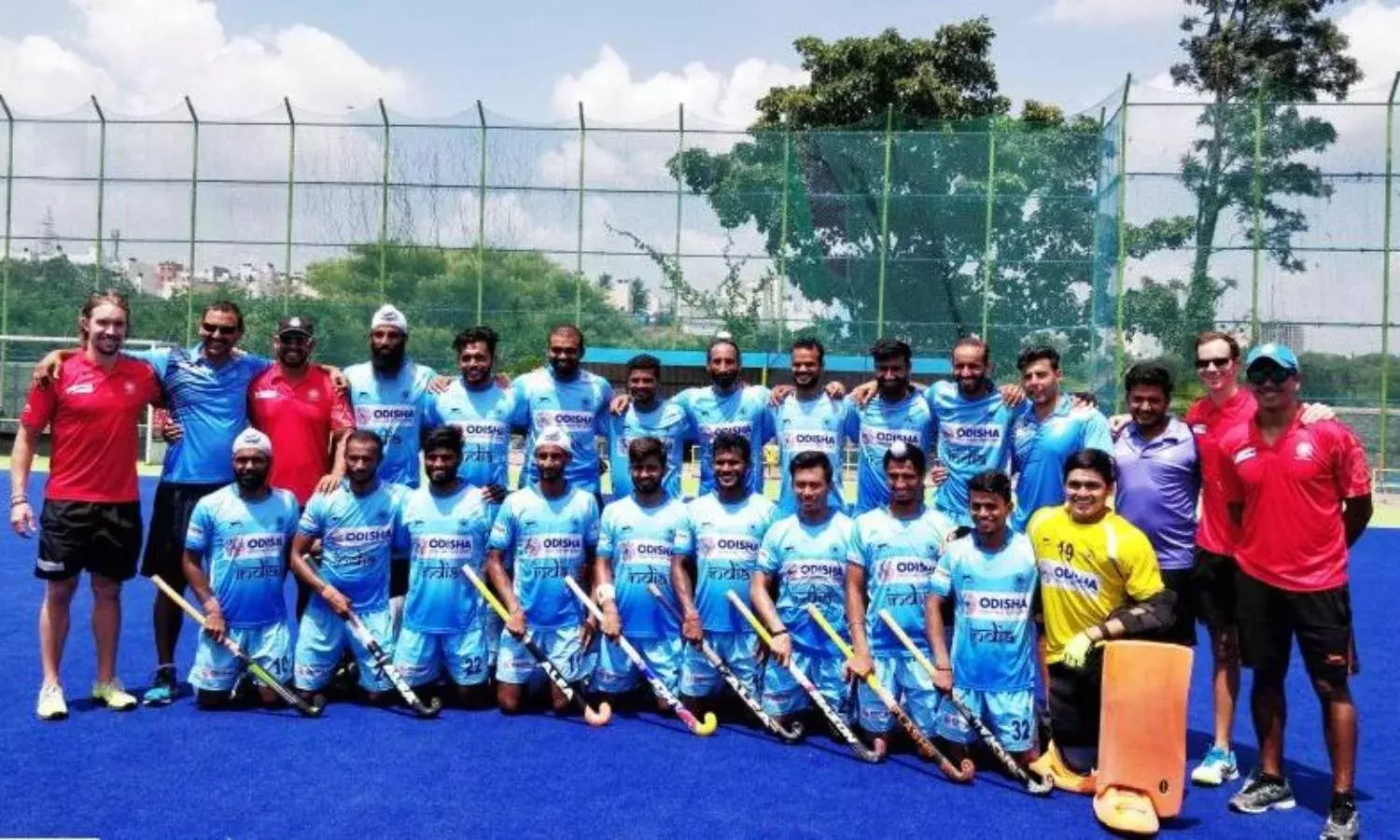India Plays Pakistan At Breda: A Contest for the Terrains of the Mind
Hockey Champions Trophy 2018

The 37th and final edition of the Men’s Hockey Champions Trophy begins at Breda on June 23, with a derby game between India and Pakistan. The famed rivalry between these two distinguished hockey nations gives the tournament a balance between performance (5 of the world’s 6 top- ranked teams are playing) and spectacle. India and Pakistan are two of the three nations that have qualified through the FIH Board’s invitation, because they draw in spectators to an under- appreciated sport.
The FIH’s marketing acumen is evident in the build- up: “ The meeting between Pakistan, the nation that launched the Hockey Champions Trophy back in 1978, and India, the eight time Olympic champions, is a fixture that is sure to draw thousands of spectators to the venue as well as millions of fans turning in from across the world, eagerly anticipating the latest episode of this long- running battle between two of the sport’s most successful nations.”
This assessment is historically accurate. Hockey games between India and Pakistan take sport beyond traditional confines: as a statement of power, politics, emotion and nationalist pride. Formations and tactics melt away, and emotion intrudes into game plans. Humans are not robots, confined to a playing structure, forever and more. Sporting expression is war- like, only with a code of ethics. Within that boundary, we enact the power dance.
Games between these two stalwart nations have alternated between the sublime and the brutal. There were scuffles on the field at a 4- nations tournament in Busselton, Australia in 2011, but also the showering of rose petals by Pakistani players on Indian spectators. Emotion blindsides skill.
So it has been, where the mind must conquer the demons within. Pakistan has the better record: winning 82 games, losing 59, with 31 games drawn.
Are Pakistanis mentally tougher than Indians on the hockey field?
This may not be necessarily true. International standing also boosts mental resilience. Growing asymmetry in power tilts the balance in favour of India. This permeates sport; India initiates actions that unbalance Pakistan.
When Pakistani players enacted an inappropriate celebration after defeating India in the 2014 Champions Trophy semi finals at Bhubaneswar, Hockey India slapped a hurting punishment: refusal to play Pakistan in all but FIH- sponsored tournaments. Pakistani players were not invited for the lucrative Hockey India League, and bilateral series were suspended. At the Azlan Shah tournament at Ipoh in 2017, a senior Malaysian hockey official told me that India had pulled out of the Sultan of Johor Cup 2017 because Pakistan was playing.
Such was the bad blood after the 2014 game that even government officials were in knots. When asked how Pakistan High Commissioner Abdul Basit should be treated in the prevailing situation (he had travelled to watch the finals between Pakistan and Germany), I told an official that ambassadors need to be treated with due courtesies, regardless of circumstances. The relieved official responded as if a time bomb had been defused.
Lately, the Indian hockey fraternity has innovated mind games to thwart the demons of the past. After India defeated Pakistan in the 2014 Asian Games finals, amid a particularly virulent and dark phase in relations, player P.R. Sreejesh said his blood boiled at playing Pakistan. At the 2017 World League Semi Finals in London, the Indian team wore black armbands to mourn soldiers who died in Kashmir. Pakistan, facing the world’s wariness at its internal combustion, has no competing narrative.
Changing statistics should, therefore, not surprise us. Before 2000 Pakistan had won 47 games and India 29. Between 2000 and now, the gap has narrowed, Pakistan winning 35 and India 30. From 2010 to now, India has the better record, with 16 wins, to Pakistan’s 8. India’s gradual improvement has coincided with Pakistan’s slow decline.
At the 2017 Asia Cup in Dhaka, with India 3- 0 up, I expressed disappointment at a sloppy passage in India’s play. Beside me, the former Pakistani international player Hassan Sardar expressed bemusement that I could be hard on India when it was comfortably ahead. Unknown to him, I was measuring the quality of India’s play against that of higher- ranked teams. Pakistan was no longer the frontier to cross, but Sardar was thinking of equivalence.
So, has India edged ahead? Who will win the game on June 23? Sreejesh has a formulaic response: “For the Indian team, the match against Pakistan is just another game.” Coach Roelant Oltmans had said the same thing before the 2014 Champions Trophy semi final game. After that loss, he was to lament that India had forgotten its game that day.
With history and memory sewn in, sometimes the emotion overtakes the actual play, forcing meltdowns, traumas, jostles, media wars, and other darkly spectacular events that make this brand of culture- driven hockey saleable. India- Pakistan games incite fans and officials in moments of play that oscillate between the sublime and the farcical. But reality is mundane; success comes when players keep a lid on their emotions.
Thus, India- Pakistan hockey games are not what players and coaches say they are. They are contests for the terrain of the mind. This can either be a cauldron or a calm ocean, or something in between. We can never be sure what might happen when India plays Pakistan at Breda on June 23. Better, therefore, not to be an astrologer.
(Jitendra Nath Misra is a former ambassador and vice president of Jawaharlal Nehru Hockey Tournament Society).



